International
BREAKING: Republicans retake Senate with at least 51-seat majority
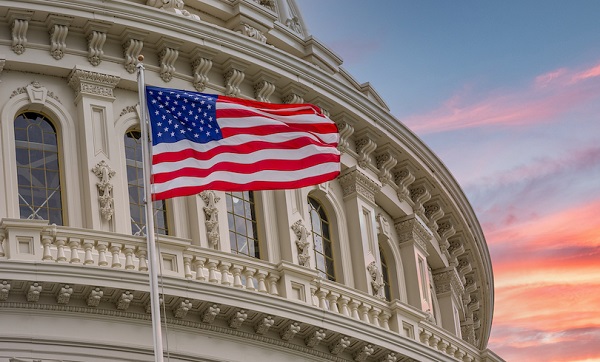
From LifeSiteNews
By retaking the Senate with at least 51 seats, Republicans have ensured that whatever else happens in the 2024 elections, conservatives’ worst fears about the Democratic legislative agenda will not come to pass.
Republicans retook the U.S. Senate Senate in Tuesday’s elections with at least 51 seats, multiple outlets have called, although the full extent of their new margin is not yet certain.
Both the Associated Press and Decision Desk HQ report that the GOP has gained two seats over their current majority, with West Virginia Gov. Jim Justice winning the seat vacated by retiring Democrat-turned-independent Joe Manchin, and challenger Bernie Moreno ousting incumbent Democrat Sherrod Brown in Ohio.
Other highlights so far include Texas Sen. Ted Cruz successfully fending off challenger Colin Allred in a 10-point victory, and Florida incumbent Rick Scott handily keeping his seat. On the flip side, Democrat Angela Alsobrooks defeated liberal Republican Larry Hogan in Maryland, and Democrat Ruben Gallego continues to lead Republican Kari Lake in Arizona. In Wisconsin, another seat the GOP has hoped to flip, challenger Eric Hovde is currently leading incumbent Tammy Baldwin, but the race is currently still too close to call.
“As a new Republican Senate majority, our focus will be to take on an agenda that reflects America’s priorities – lower prices, less spending, secure borders, and American energy dominance,” Senate Republican Conference Chair John Barrasso of Wyoming said, the Washington Examiner reports. “That is what we will set out to do on Day One. Our new Republican Senators will be instrumental in the success of this agenda. Senate Republicans are focused on getting this country back on track.”
A Republican Senate guarantees that, if former President Donald Trump returns to the presidency, he will have a much easier time confirming judicial nominees and executive appointees, whereas if Vice President Kamala Harris defeats him instead, most of the far-left agenda items she campaigned on would not be able to reach her desk.
Decision Desk is currently projecting Democrats to narrowly retake the House of Representatives 219-216, though most major outlets haven’t called control of the House.
LifeSiteNews’s current electoral map places Trump at 230 electoral votes and Harris at 210, but while multiple outlets are expecting a Trump victory, no official winner has been called.
conflict
Victor Davis Hanson Makes a Disturbing Prediction About What Happens If Iran Survives
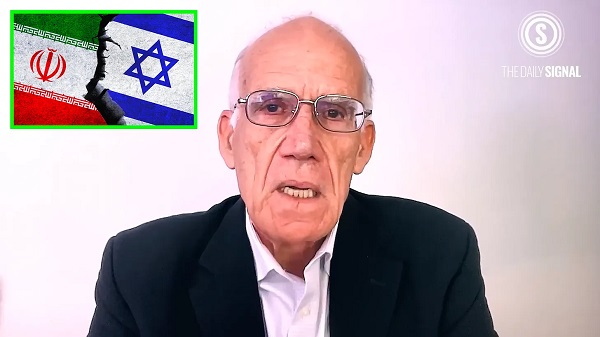
Amidst rough seas, you need a steady sailor.
Not just what’s happening, but what’s coming next.
“I think we’re going to see things that we haven’t seen in our lifetime in the Middle East,” he said.
This could go one of two ways, neither is small.
Victor Davis Hanson isn’t known for hyperbole. So when he opens with a warning like this, people pay attention:
“We are at an historic time in the Middle East,” he said.
“Never in our lifetimes have we been closer to a complete revolutionary fervor that gives promise of normalcy for the Middle East. And never have we been in more danger of seeing the entire region blow up.”
The paradox is striking.
Peace may be closer than ever, but so is total collapse.
And at the center of it all is the unfolding conflict between Iran and Israel, which Hanson called “surreal.”
Reflecting on the rapid collapse of Iran’s regional dominance, Hanson admitted that even a few years ago, this moment would have been unthinkable.
“If we had this conversation five years ago,” he said, “and I said to you, the Iranian nation that is huge compared to Israel, ten times the population, the Iranian nation has lost all control of the Houthi terrorists, and they are themselves neutered…”
He pointed to a chain reaction across the region: Iran’s proxy forces in Gaza and the West Bank have been neutralized. Hezbollah, once a feared military force, is now dormant.
“They’re gone as a Hamas, as a fighting force. The formidable, the terrifying Hezbollah cadres, they’re inert.”
The chaos in Syria, once a stronghold of Iranian influence, now seems to be working against Tehran.
“There is no more Syria, the Assad dynasty, the pro-Iranian, the Syria. It’s in chaos. But whatever the chaos is, seems to be anti-Iranian.”
The collapse is strategic, not just symbolic. Hanson noted that the so-called “Shia crescent” connecting Tehran to the Mediterranean is no longer intact.
“Lebanon is free of Iranian influence. So is Syria. Gaza, a de facto, will be.”
Even Russia, once a key ally, is no longer a player in the region.
“It’s tied down in Ukraine,” he said.
“Iran itself, the formidable powerhouse of the Middle East that evoked terror all over, has no defenses.”
Over the course of just five days, Israel has launched a targeted military campaign to dismantle Iran’s strategic infrastructure.
According to Hanson, the damage has been sweeping.
“They have dismantled all of the Iranian missile defenses. They have dismantled the terrorist hierarchy. They have dismantled the people who are responsible for the nuclear program.”
And yet, there’s risk.
“The Iranians have sent over 400 ballistic missiles and drones into Israel,” he said, “and 90 percent are stop. But that 10 percent gets through.”
Which brings us to the turning point.
All of this only matters if it ends with Iran’s theocracy on the brink of collapse.
If it doesn’t, everything that’s been gained could be erased.
“All of this chaos and all of this war will be for not if Iran’s theocracy emerges intact from this war.”
Even more dangerous, he added, would be a scenario in which the country’s nuclear infrastructure survives or can be quickly rebuilt.
That possibility has triggered one of the most urgent strategic questions on the table: Can Israel finish the job?
Or will it need help from the United States to strike Iran’s deeply buried nuclear facilities?
This is where things get complicated.
Under the “America First” foreign policy doctrine, Trump has been clear: no more forever wars, no more ground troops in the Middle East.
But Hanson argued that Trump’s actions tell a deeper story.
“I’m not an isolationist, I’m a Jacksonian,” he said, echoing what Trump might say.
“You should have known that when I took out Soleimani… when I took out Baghdadi… when I took out the Wagner Group.”
The message? Trump doesn’t go looking for wars. But when deterrence is at stake, he’s not afraid to act decisively.
Still, Hanson posed a chilling question: what if the Iranian regime survives?
“If this war should end with the Iranian regime intact and the elements of its nuclear program recoverable,” he warned, “then in some ways it will be all for naught.”
Despite Iran’s military losses, its media destruction and its isolated position, surviving such a coordinated strike could give it something even more powerful than weapons: perceived invincibility.
“It will be more like, oh my gosh, Iran survived everything that Israel, and by association the United States, threw at it.”
“It’s indestructible.”
And that, Hanson suggested, would be the real danger.
Not just a return to the status quo, but a shift in perception that emboldens the regime and reshapes the balance of power across the region.
Now the question hanging over the entire conflict is this: does the world play it safe and allow remnants of Iran’s nuclear infrastructure to survive?
Or risk a final strike that could eliminate the threat for good, but possibly trigger even greater instability?
“Do you risk more danger by taking out and eliminating the nuclear threat for good,” Hanson asked, “and by association, you humiliate the theocracy to the point it can be overthrown?”
That’s the gamble.
He didn’t shy away from his own discomfort with war.
“I don’t like forever wars,” he added.
“I don’t like preemptive wars. I do not like the United States intervening anywhere in that godforsaken area. But if the war ends with the regime intact and a recoverable nuclear program, it won’t just be back to square one. It will be a disaster.”
That’s when he dropped a bombshell prediction of the future in the area after the dust settles in the desert.
Whether this ends in collapse or resurgence, Hanson believes the next phase of the war could reshape the entire region and the world’s understanding of power in the Middle East.
“So we’ll see what happens,” he said.
“And hold on, everybody. I think we’re going to see things that we haven’t seen in our lifetime in the Middle East. And it could turn out very bad.”
“But it could also turn out to be quite revolutionary and remake the map of the entire region.”
This story was made possible with the help of Overton —I couldn’t have done it without him.
If you’d like to support his growing network, consider subscribing for the month or the year. Your support helps him expand his team and cover more stories like this one.
We both truly appreciate your support!
Subscribe to The Vigilant Fox
International
Taiwan Criticizes CBC Correction on United Front Buddhist Land Story, Citing PRC Political Pressure

Taiwan’s Foreign Ministry warns that CBC’s editorial change “undermines the essence of press freedom” and reflects growing Chinese pressure on international media.
Canada’s state broadcaster, CBC, is facing diplomatic criticism from Taiwan after issuing a controversial correction to an explosive story regarding Chinese influence via foreign investment in Prince Edward Island—raising new questions about whether Chinese government pressure is compromising Canadian press freedom and influencing media coverage of foreign interference.
On June 14, CBC/Radio-Canada published a report on alleged ties between Bliss and Wisdom, a Buddhist group with growing land holdings on Prince Edward Island, and the Chinese Communist Party’s United Front Work Department. The report—based in part on findings from The Bureau’s contributor Garry Clement—noted deep concerns from PEI residents about the group’s agricultural land acquisitions and its alleged links to Beijing, including its reported advocacy for China’s annexation of Taiwan.
It highlighted a high-ranking monk from Taiwan who traveled “between his home country, Prince Edward Island, and China” in 2023 for ideological outreach, at the invitation of a Buddhist organization affiliated with the United Front Work Department—the Chinese Communist Party’s covert foreign interference arm.
But on June 17, CBC issued a correction: “In that story, the reporter said Taiwan is a country that China is threatening to invade. In fact, Taiwan is a self-governing island, and there is dispute around who controls it.” No explanation was provided for the change.
That revision quickly sparked backlash in Taipei. In a statement to Taiwan News, Taiwan’s Ministry of Foreign Affairs (MOFA) said it was “regretful and disappointed” to see international media “engage in self-censorship or deliberately avoid using the term ‘country’ to refer to Taiwan due to political pressure from China or concerns about Beijing’s stance.” MOFA reportedly reiterated that Taiwan “is a sovereign and independent country, and is not subordinate to the People’s Republic of China,” and urged foreign media to uphold “objectivity and fairness,” warning that compromise on coverage “undermines the essence of press freedom” and distorts Taiwan’s international status.
CBC did not respond to a request for comment from Taiwan News.
CBC is funded by the federal government and mandated by the Broadcasting Act to serve the public interest with independence, journalistic integrity, and balanced coverage. Taiwan’s concerns, delivered through its Ministry of Foreign Affairs, suggest a de facto state-to-state issue.
The CBC correction was also flagged Thursday by Canadian diaspora advocacy group Friends of Hong Kong, which has documented suspected United Front influence in Canada, including media pressure campaigns. “So disappointing for Canadian media: this is a politically-charged correction, due to either self-censorship or external intervention, and wilfully blind to the reality of #Taiwan the island state,” the group posted to X, calling attention to CBC’s correction notice.
The controversial CBC report was informed by a parallel investigation led by Garry Clement—a former RCMP proceeds-of-crime director—along with former CSIS Asia-Pacific chief Michel Juneau-Katsuya and publisher Dean Baxendale. The three co-authors of the forthcoming book Canada Under Siege spent the past year examining Bliss and Wisdom’s land acquisitions, foreign financial inflows, and political influence on Prince Edward Island. In his column for The Bureau, Clement warned that the RCMP’s refusal to investigate the group reflects “a chilling portrait of political complacency” and asserted that Canadian democracy is being degraded not by coups or force, but by “the quiet neglect of responsibility.”
CBC has not acknowledged external pressure behind the correction, but The Bureau has previously documented similar interference. In November 2024, China’s Consul General Yang Shu directly pressured Vancouver Mayor Ken Sim after he invited Taiwan’s representative to a civic luncheon, stating: “This was inappropriate… The Consulate General of the People’s Republic of China is the only consular mission representing China in Vancouver.” The PRC expressed dissatisfaction with the participation of Taiwan’s envoy in the B.C. Consular Corps luncheon—despite established diplomatic practice allowing their attendance.
Given this backdrop, it is plausible—though not confirmed—that CBC received similar behind-the-scenes pressure following its original PEI report.
That concern finds further grounding in evidence tabled before Canada’s Hogue Commission and leaked intelligence reviewed by The Bureau.
A leaked October 2022 CSIS report analyzed by The Bureau found that China’s election interference and political influence in Canada have been enabled by Beijing’s covert “takeover” of Chinese-language media, along with sophisticated, massively funded schemes targeting mainstream outlets and seeking to control “key media entities,” according to intelligence documents.
These clandestine operations have involved threats against journalists, the documents state, as well as inducements—such as benefits offered by Vancouver’s Chinese Consulate to cultivate “key editors, producers, and high-ranking managers.”
Among the declassified top-secret records presented to the Hogue Commission by diaspora-group participant Gabriel Yiu is a July 2023 Canadian intelligence report titled “CHINA: Domination of Chinese-Language Media in Canada Poses National Security Threats.” The document details systemic Chinese Communist Party influence over Chinese-language media outlets in Canada.
“Communist Party of China (CPC)-friendly narratives inundate Chinese-language media in Canada,” it says. “Censorship (including self-censorship) is pervasive, and alternative voices are few or marginalized in mainstream Chinese-language media. This includes both traditional media, such as newspapers, and digital platforms like WeChat.”
In a column for The Bureau, Yiu wrote, “I believe the Canadian intelligence agency’s assessment is accurate. From my own experience as a commentator since the 1990s, I have observed these shifts.” He also underscored key excerpts from the CSIS report:
- “The CPC’s strategy to control media operates on two fronts: narrative control and platform control. [redacted] overt and clandestine.”
- “The CPC limits opportunities for dissenting voices [redacted], provides economic incentives [redacted], and fosters self-censorship [redacted].”
- “The CPC’s influence on Chinese-language media, shaping public opinion overseas, also supports other activities, including transnational repression and influencing electoral outcomes.”
The Bureau is a reader-supported publication.
To receive new posts and support my work, consider becoming a free or paid subscriber.
Invite your friends and earn rewards
-
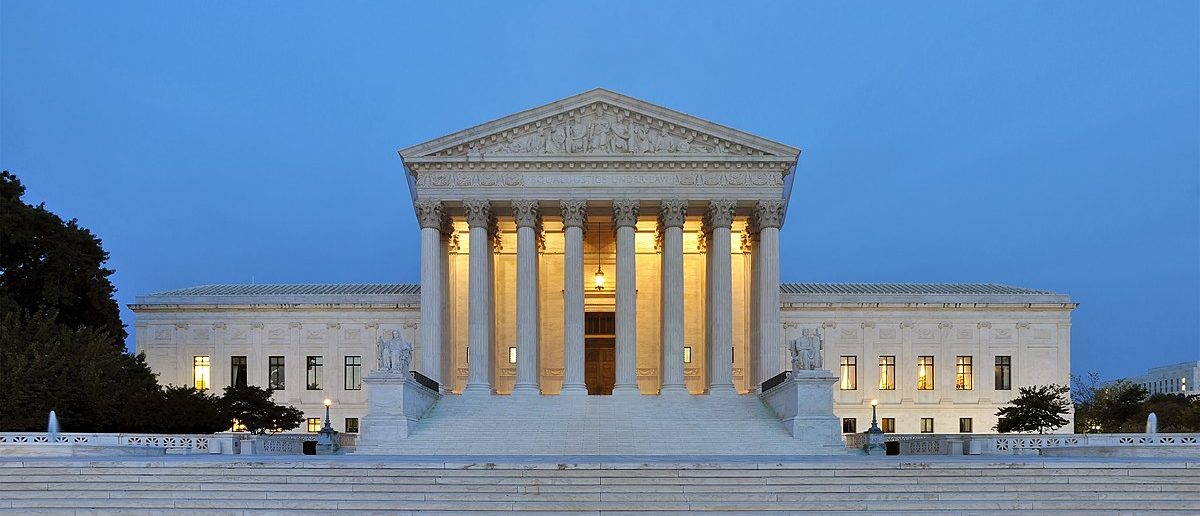
 Daily Caller1 day ago
Daily Caller1 day agoUnanimous Supreme Court Ruling Inspires Hope For Future Energy Project Permitting
-

 espionage1 day ago
espionage1 day agoFBI Buried ‘Warning’ Intel on CCP Plot to Elect Biden Using TikTok, Fake IDs, CCP Sympathizers and PRC Students—Grassley Probes Withdrawal
-

 Agriculture1 day ago
Agriculture1 day agoUnstung Heroes: Canada’s Honey Bees are not Disappearing – They’re Thriving
-

 espionage1 day ago
espionage1 day agoFrom Sidewinder to P.E.I.: Are Canada’s Political Elites Benefiting from Beijing’s Real Estate Reach?
-
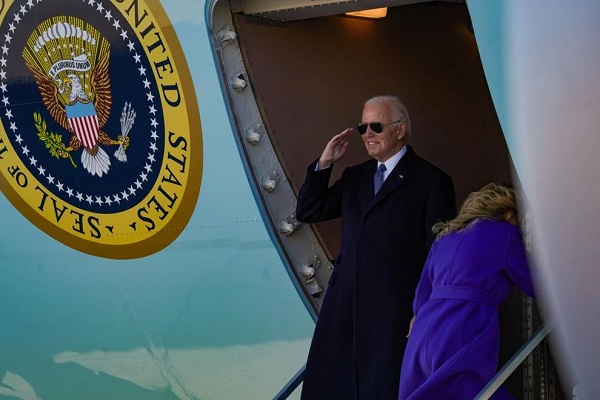
 International2 days ago
International2 days agoJudiciary explores accountability options over Biden decline ‘coverup’
-

 Economy2 days ago
Economy2 days agoOttawa’s muddy energy policy leaves more questions than answers
-

 Energy1 day ago
Energy1 day agoWho put the energy illiterate in charge?
-
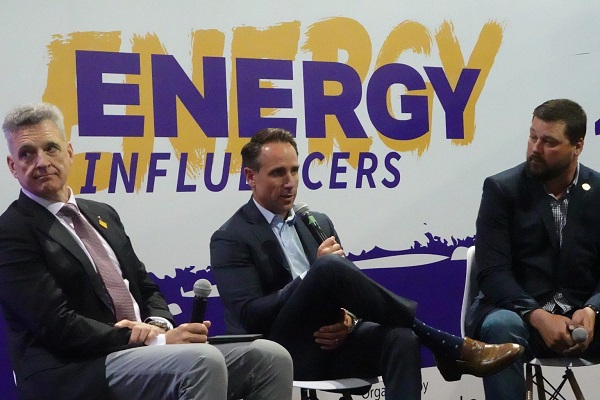
 Alberta1 day ago
Alberta1 day agoAlberta’s carbon diet – how to lose megatonnes in just three short decades




